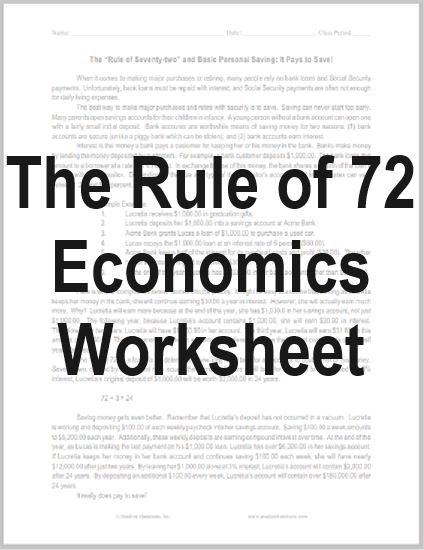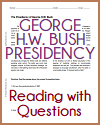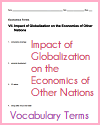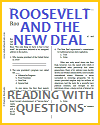Click here to print this worksheet. It prints as two pages or as one double-sided sheet.
The “Rule of Seventy-two” and Basic Personal Saving: It Pays to Save!
When it comes to making major purchases or retiring, many people rely on bank loans and Social Security payments. Unfortunately, bank loans must be repaid with interest, and Social Security payments are often not enough for daily living expenses.
The best way to make major purchases and retire with security is to save. Saving can never start too early. Many parents open savings accounts for their children in infancy. A young person without a bank account can open one with a fairly small initial deposit. Bank accounts are worthwhile means of saving money for two reasons: (1) bank accounts are secure (unlike a piggy bank which can be stolen); and (2) bank accounts earn interest.
Interest is the money a bank pays a customer for keeping her or his money in the bank. Banks make money by lending the money deposited by customers. For example, a bank customer deposits $1,000.00. The bank loans this amount to a borrower at a rate of 6% interest. In exchange for use of this money, the bank shares a portion of the loan’s interest with the depositor. Depending on the size and type of the depositor’s account, paid interest rates can vary between .25 and five percent....
|














